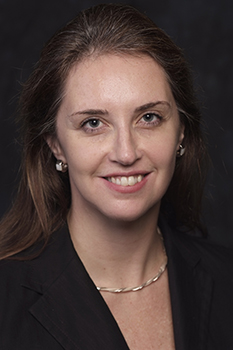Latest News Archive
Please select Category, Year, and then Month to display items
13 August 2024
|
Story Anthony Mthembu
|
Photo Sibahle Dayimani and Amandla Kulu
 Prof Peter Roseel, Managing Director of Management Consulting and Research – a spin-off of the Catholic University of Leuven in Belgium; and Prof Nicolene Barkhuizen, Director of the UFS Business School.
Prof Peter Roseel, Managing Director of Management Consulting and Research – a spin-off of the Catholic University of Leuven in Belgium; and Prof Nicolene Barkhuizen, Director of the UFS Business School.
The Business School at the University of the Free State (UFS) hosted Prof Peter Rosseel, Managing Director of Management Consulting and Research – a spin-off of the Catholic University of Leuven in Belgium – for a guest lecture during his visit to the UFS Faculty of Economic and Management Sciences (EMS).
The guest lecture took place on 19 July 2024 in the Business School Auditorium and was attended by academics from the UFS.
Reflecting on the lecture
The lecture presented by Prof Rosseel focused on how combining strategy, strategy implementation, culture transformation, leadership, and learning successfully leads to sustainable growth, creates engagement, and delivers tangible results. Throughout the lecture, Prof Rosseel spoke about how experts tend to make bad leaders and therefore stop change from happening within an organisation. In fact, he highlighted that, “Experts stop change from happening within the workplace because experts, by definition, look through the eyes of their expertise, but you cannot reduce the world to different forms of expertise, as it is holistic.” As such, he argued that to change an organisation, one must see things from the point of view of others.
Furthermore, Prof Rosseel delved deeper into the hierarchical operating model within organisations. He indicated that the above model should be one community within organisations; however, unfortunately it is not. This is because organisations are made up of several departments such as finance and human resources. As such, he regards these departments to be silos that could prove to be detrimental to organisations, as each silo can create its own culture as opposed to an organisational culture. These are some of the points he discussed throughout the lecture.
After the lecture concluded, the audience had the opportunity to engage with Prof Rosseel on his viewpoints. In fact, Lyle Markham, Academic Head of Department and Lecturer in Industrial Psychology at the UFS, was one of the audience members and described the lecture as insightful.
CDS receives another international grant from the NIH
2015-12-11
 Dr Carla Sharp |
The Centre for Development Support (CDS) is partner to another international research grant from the National Institutes of Health (NIH) in the United States. The new project follows an earlier project funded by the NIH, which focused on the mental health of orphans and vulnerable children.
The new project is to focus on investigating possible improvements in the mental health and cognitive development of orphaned and vulnerable children aged between seven and eleven years, by means of improved community-based care in the Mangaung Township area in Bloemfontein. The project will stretch over three years and has a budget of approximately R10 million.
“We shall use the Mediational Intervention of Sensitizing Caregivers (MISC) approach and it will be applied by community-based organisations,” says Dr Deidre van Rooyen, Acting Director of the CDS.
MISC applied by caregivers has produced good results elsewhere in the world. “This is the first time MISC will be tested by community-based organisations,” says Prof Lochner Marais of the CDS, who is also the principal investigator in South Africa.
“In addition to working with four community-based organisations in Mangaung, Childline Free State will also be actively involved in the project,” Marais added.
The project is being conducted in collaboration with Dr Carla Sharp as principal investigator at the University of Houston, and Prof Michael Boivin (an international expert on MISC) at the Michigan State University. Dr Sharp was recently appointed visiting professor at the CDS.
“It is indeed a great privilege to be working with the CDS on yet another project,” Dr Sharp remarked, also noting that “the project is preliminary in nature and could evolve into a much bigger research project in future”.